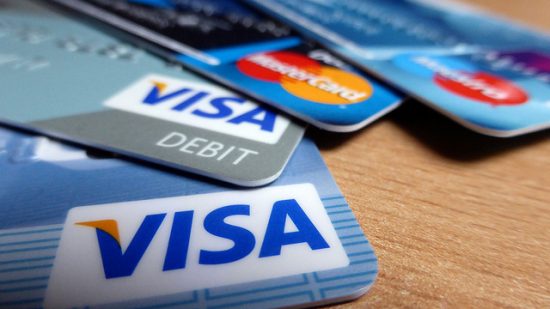
For those who love their cash-back, airline miles, or other reward credit cards, the question, “Can I buy a car with a credit card?” has likely crossed their mind at some point. It makes sense. A car is a large purchase, and being able to put it on a credit card could mean tens of thousands of reward points. If the consumer is going to purchase the car with cash, being able to place the purchase on a credit card would be like getting free reward points while not costing them a cent, as they would simply pay off the balance due in full when the credit card statement arrived. So the question is, why don’t people buy a car with their credit card?
The answer is quite simple. Most car dealerships won’t allow you to purchase the car on a credit card, and for a good reason. If the car dealership allowed you to purchase the car with a credit card, they would need to pay a fee to the credit card company for the transaction. This fee would cut directly into their profit, which gives them no incentive to allow you to do it. Since in many cases the profit margin on the car is in the single percentage digits, accepting a credit card, which could erase as much as 4% of that profit, would hurt their revenue from the sale quite a bit. If you ask most car dealers, they will say they won’t accept a credit card for the purchase of a vehicle.
There is another reason car dealerships may want to avoid credit cards. When a person pays with a credit card, they have the option to dispute the payment, and in such cases, the credit card company will hold the payment while it investigates the claim. There is a chance the company will get a chargeback meaning they lose both the money paid for the vehicle and the car itself. Even if they don’t lose the case, the time they must put into proving the sale was legit and the buyer received exactly what he paid for is a cost they must eat.
If a car dealer does say they will accept payment by credit card, realize that in most cases you’re paying more for the car than you should be. The car dealer would never offer you this option unless they had already factored in the percentage they must pay to the credit card company into the price of the car. If you’re paying more for the car, the rewards you’re getting for the credit card aren’t really free rewards since you’re paying for them in the form of a higher price for the car.
There are exceptions to this rule. In certain circumstances, you may be able to negotiate a partial payment on your credit card for a portion of the price of the car. Sometimes at the end of the month when a salesperson needs an extra sale to meet quota, or to get a sales bonus, it can make sense for them to let you put a portion of the purchase on a credit card even though it will cost them a bit on the sale. In this situation, the monetary loss they may have on the sale will be made up with the bonus incentive they receive for meeting a sales goal.
While still not common, more dealers are accepting credit cards for down payments on cars. There is usually a limit to how much they will accept (usually $5,000 maximum), and they’ll usually only do so when you agree to finance the car through their financing program. The logic here is they will earn back the amount of the credit card costs through the financing.
If you do find a dealership willing to accept a credit card for payment, or partial payment, it’s important to remember this is only a good deal if you have the money to pay off the amount charged in full on the next credit card statement. Interest rates on cash back and reward cards are usually quite high, and any reward you may gain from doing this will instantly disappear with the finance charges you must pay.
Other writers have looked at this (here, and here) and pretty much concluded the same thing. You can sometimes use a credit card, but you definitely want to pay off the balance.
(Photo courtesy of Sean MacEntee)
Jeffrey strain is a freelance author, his work has appeared at The Street.com and seekingalpha.com. In addition to having authored thousands of articles, Jeffrey is a former resident of Japan, former owner of Savingadvice.com and a professional digital nomad.
Comments